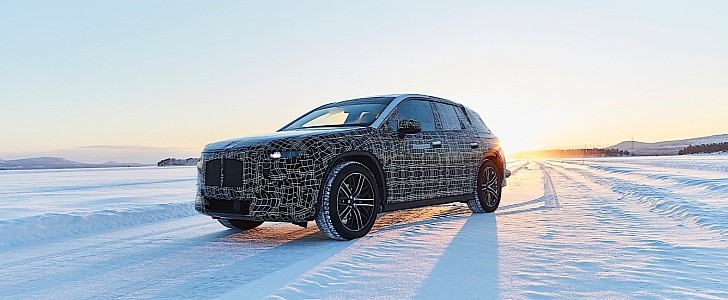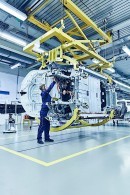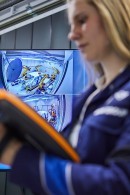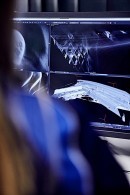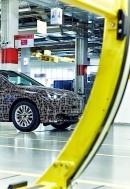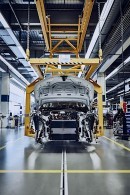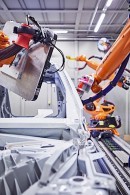As “in our faces” as they seem, electric cars are still far from making an actual impact on, well, anything. They’re not really that many as to have a say on the quality of the air, and they don’t make for the bulk of automaker’s revenues (except, of course, for those companies that only make EVs). But that’s only temporary.
Carmakers have a habit of planning for the long term, and when they commit to something they’re not likely to backtrack. And pretty much all of them, without exception, have committed to some form of electrification for their future models.
That means that in no time the world will be in dire need of raw materials to make batteries and such. And this emerging industry – the one tasked with finding and exploiting said materials – is geared up for what’s to come, with the biggest players already entangled with this or that auto brand.
The latest move in this segment involves BMW and Moroccan company Managem Group. The Bavarians announced this week the signing of a contract that would secure the cobalt it "needs as a key raw material for battery cells” until 2025.
By the middle of the current decade, BMW plans to have over 25 electrified cars on the roads, half of which full BEVs, and it needs quite a lot of cobalt.
The announced deal with Managem would only grant it access to about one-fifth of the cobalt quantities it needs, and will cost the Germans about €100 million ($113 million). As for the rest, BMW plans to get it from Australian companies.
"Cobalt is an important raw material for electromobility. By signing this supply contract with Managem today, we are continuing to secure our raw material needs for battery cells,” said in a statement Andreas Wendt, member of the Board of Management of BMW AG responsible for Purchasing and Supplier Network.
“We are systematically driving electrification of our vehicle fleet. By 2023, we aim to have 25 electrified models in our line-up – more than half of them fully-electric. Our need for raw materials will increase in line with this. For cobalt alone, we expect our needs to roughly triple by 2025.”
All the cobalt needed by BMW in the short term will go into the fifth generation of battery cells that will be deployed on the seriously bigger fleet of electrified cars.
That means that in no time the world will be in dire need of raw materials to make batteries and such. And this emerging industry – the one tasked with finding and exploiting said materials – is geared up for what’s to come, with the biggest players already entangled with this or that auto brand.
The latest move in this segment involves BMW and Moroccan company Managem Group. The Bavarians announced this week the signing of a contract that would secure the cobalt it "needs as a key raw material for battery cells” until 2025.
By the middle of the current decade, BMW plans to have over 25 electrified cars on the roads, half of which full BEVs, and it needs quite a lot of cobalt.
The announced deal with Managem would only grant it access to about one-fifth of the cobalt quantities it needs, and will cost the Germans about €100 million ($113 million). As for the rest, BMW plans to get it from Australian companies.
"Cobalt is an important raw material for electromobility. By signing this supply contract with Managem today, we are continuing to secure our raw material needs for battery cells,” said in a statement Andreas Wendt, member of the Board of Management of BMW AG responsible for Purchasing and Supplier Network.
“We are systematically driving electrification of our vehicle fleet. By 2023, we aim to have 25 electrified models in our line-up – more than half of them fully-electric. Our need for raw materials will increase in line with this. For cobalt alone, we expect our needs to roughly triple by 2025.”
All the cobalt needed by BMW in the short term will go into the fifth generation of battery cells that will be deployed on the seriously bigger fleet of electrified cars.
